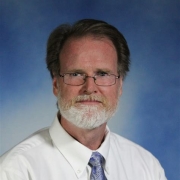Teacher Agency
Paul Magnuson, Director of Educational Research, Leysin American School.
In the most recent issue of Teachers and Teaching, Tebeja Molla and Andrea Nolan (2020) report their findings on teacher agency and professional practice. They consider five different facets of professional practice that are associated with strong teacher agency.
I think school administrators could spend a productive hour or two discussing their school climate in relation to Molla and Nolan’s professional practices for two main reasons. (1) School climate is critical for good teaching, and therefore good learning, and (2) increasing teacher agency as a school seems like a very promising way through which to increase student agency, which for me is among the more neglected aspects of how we do school.
Here are their facets of teacher professional agency.
Inquisitive agency (specialist knowledge and skills). The more knowledgeable we are in our area of expertise, the more confident we are, and the more willing we are to explore what we don’t know. As Molla and Nolan put it, “…teacher confidence is closely aligned with having the necessary professional capital” (2020, p. 72). But don’t stop there. Subject matter knowledge and training are necessary, but not sufficient.
Deliberative agency (critical reflection on one’s practices, theories, and assumptions). As reflective practitioners we consider our teaching through multiple lenses and collaborate with our colleagues while balancing trust and doubt in oneself. That is, as professionals we know what we are doing and we doubt it at the same time. Our teaching lives are full of iterative action research cycles – even many in a single lesson, perhaps – in which we plan-act-reflect in order to constantly grow. Sharing these experiences with others, in a climate of trust and confidence, promotes agency.
Recognitive agency – teachers are valued and respected. It’s obvious to anyone who has ever been recognized with a metaphorical pat on the head that recognition is complex. Molla and Nolan highlight that to be recognized as a professional we have to have the freedom to form personal opinions and to make professional judgments. Cookie cutter curricula and overly defined instructional methodology can hamper a sense of recognitive agency and therefore teacher agency overall.
Responsive agency – sense of service, appropriately meeting the needs of children. As teachers, we like to think and act in ways that allow us to meet the needs of all children, or put more pragmatically, the greatest number of needs for the greatest number of children. Teacher professional agency therefore includes the ability and freedom to challenge practices that prevent us from that goal.
Moral agency – doing the right thing for the right reason. “Teachers should be able to make responsible choices” (Molla and Nolan, 2020, p. 77). Being a professional includes reacting to a range of situations – social, physical, psychological – as they arise, based on one’s best judgment in the moment, informed by one’s history of practice and reflection. Included here is the imperative to continue learning, which encompasses the previous four facets of professional agency.
So it’s all about … what? Culture, I think. A culture of trust, for one. Also a culture of high expectations, but only if we understand high expectations in a far more nuanced way than compliance with a mandate for, say, high test scores. High expectations are what we have for our own teaching, our own professionalism. Trust and high expectations are summarized by Molla and Nolan in two subsections: creating an empowering learning environment (for me, a culture of trust) and problematising professional practice (again for me, the freedom to take risks).
Now what about those administrators who have perhaps taken an hour or two to discuss the article. What concretely might they do next? Here’s my suggestion:
Make a scale for each of these five facets of teacher professional agency, starting with “not at all” and running to “very.” Predict how your faculty would rate your current school climate. Hand over the question of “where do we fall on these continua?” to the faculty. Let them create a measurement, a survey, whatever it takes to show their perceptions on the same five scales. Compare administrative and teaching faculty opinions. And then, together, identify the first small steps – little bets – to start shifting school culture where the culture needs to shift most.
Teachers stand to develop more professional agency. Students stand to follow their example.
BIOGRAPHY
Molla, T. & Nolan, A. (2020). Teacher agency and professional practice, Teachers and Teaching, 26(1), 67-87.
ABOUT THE AUTHOR
Paul Magnuson is the director of Educational Research at Leysin American School and adjunct faculty for the International Education Program of Endicott College. His interests include student agency and self-regulated learning for students and teachers.
pmagnuson@las.ch






Thank you Paul for sharing your insights and the importance of moral agency. A very valuable perspective.